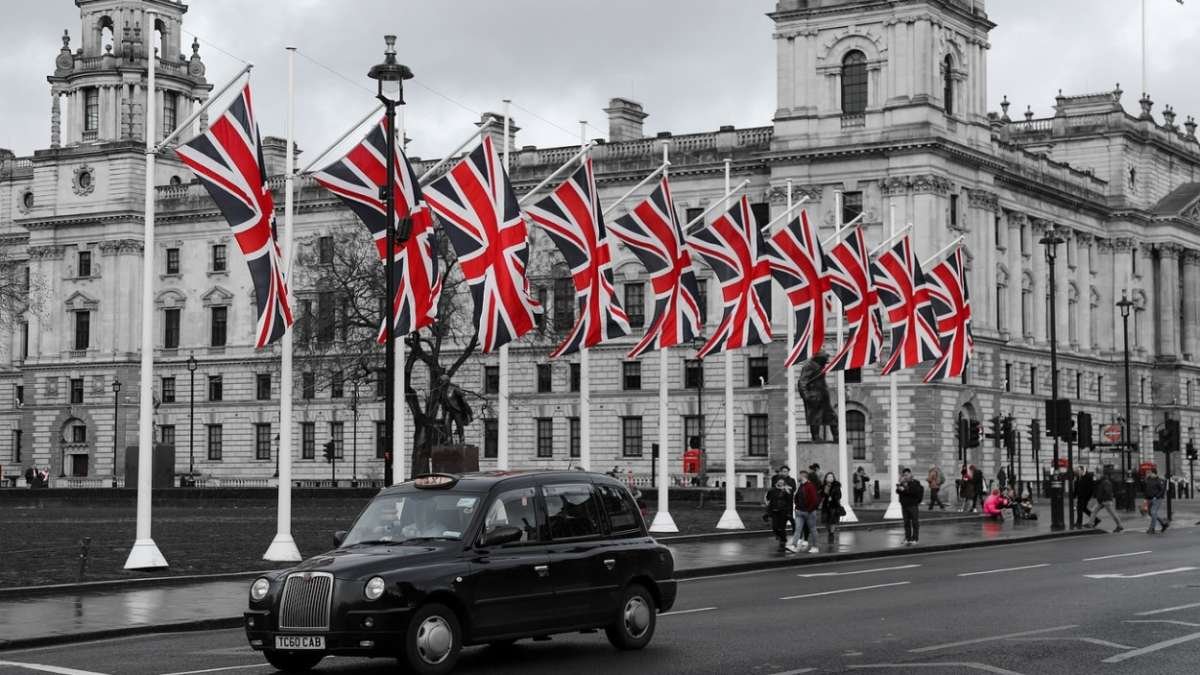The UK’s economy has officially entered a recession, following a contraction in the last quarter of 2023. The news comes after a series of disappointing economic data releases, which showed a GDP decline of 0.3% in the final quarter of the year.
The UK’s economy is now in a technical recession, defined as two consecutive quarters of negative growth. This is the first recession since the 2008 financial crisis, and it has significant implications for households, businesses, and the government.
The economic downturn has been driven by a combination of factors, including rising inflation, falling consumer confidence, and a slowdown in business investment. The war in Ukraine and ongoing supply chain disruptions have also contributed to the economic slowdown.
The impact of the recession is already being felt by households, with many reporting a decline in their standard of living. Consumers are cutting back on spending, and businesses are facing increasing costs and uncertainty.
The government has announced a series of measures aimed at supporting businesses and households through the recession. These include tax cuts, increased investment in infrastructure, and targeted support for the most vulnerable members of society.
However, the government’s response has been met with criticism from some quarters. Opponents argue that the measures do not go far enough and that more radical action is needed to stimulate economic growth.
Economists are divided on the outlook for the UK economy. Some predict a prolonged period of economic stagnation, while others are more optimistic and believe that the UK will recover quickly once the current headwinds have passed.
The Bank of England has also weighed in on the debate, warning that the UK faces a prolonged period of low growth and high inflation. The Bank has raised interest rates in an attempt to curb inflation, but this has added to the burden on businesses and households.
The UK’s recession is not unique. Many other countries are also facing economic challenges, with rising inflation and slowing growth. However, the UK’s situation is particularly challenging, given the country’s reliance on services and its exposure to global economic trends.
The UK’s economic downturn has significant implications for businesses and households. Companies are facing increasing costs and uncertainty, while consumers are cutting back on spending. The government’s response has been met with criticism, and economists are divided on the outlook for the UK economy.
The UK’s technical recession is expected to have a significant economic impact on the country. The slowdown in economic growth will affect households, businesses, and the government, with many facing increased costs and uncertainty.
Households are likely to be hit hard by the recession, with many already struggling with the cost of living. The slowdown in economic growth will lead to job losses and reduced income, putting further pressure on household budgets. The decline in consumer spending will also impact businesses, particularly those in the retail and hospitality sectors.
Businesses are also likely to face increased costs and uncertainty as a result of the recession. The slowdown in economic growth will lead to reduced demand for goods and services, putting pressure on businesses to cut costs. This could lead to job losses and reduced investment in research and development, which could have long-term implications for the UK’s competitiveness.
The government is also likely to feel the impact of the recession, with reduced tax revenues and increased spending on social security benefits. The government’s response to the recession, including tax cuts and increased investment in infrastructure, will also add to the country’s debt burden.
The UK’s technical recession is a serious issue that will have far-reaching economic consequences. It is essential that the government, the Bank of England, and businesses work together to address the challenges facing the UK economy and to ensure that the UK remains a strong and prosperous nation.
The UK’s technical recession is not unique, and many other countries are also facing economic challenges. However, the UK’s situation is particularly challenging, given the country’s reliance on services and its exposure to global economic trends. The UK’s economic downturn has significant implications for businesses and households, and it is essential that the right policies and measures are put in place to support them through this difficult time.
Economic Impact on the UK:
The UK’s technical recession is expected to have a significant economic impact on the country. The slowdown in economic growth will affect households, businesses, and the government, with many facing increased costs and uncertainty.
Households are likely to be hit hard by the recession, with many already struggling with the cost of living. The slowdown in economic growth will lead to job losses and reduced income, putting further pressure on household budgets. The decline in consumer spending will also impact businesses, particularly those in the retail and hospitality sectors.
Businesses are also likely to face increased costs and uncertainty as a result of the recession. The slowdown in economic growth will lead to reduced demand for goods and services, putting pressure on businesses to cut costs. This could lead to job losses and reduced investment in research and development, which could have long-term implications for the UK’s competitiveness.
The government is also likely to feel the impact of the recession, with reduced tax revenues and increased spending on social security benefits. The government’s response to the recession, including tax cuts and increased investment in infrastructure, will also add to the country’s debt burden.
The UK’s technical recession is a serious issue that will have far-reaching economic consequences. It is essential that the government, the Bank of England, and businesses work together to address the challenges facing the UK economy and to ensure that the UK remains a strong and prosperous nation.
The UK’s technical recession is not unique, and many other countries are also facing economic challenges. However, the UK’s situation is particularly challenging, given the country’s reliance on services and its exposure to global economic trends. The UK’s economic downturn has significant implications for businesses and households, and it is essential that the right policies and measures are put in place to support them through this difficult time.
Government Response and Policy Measures :
The government’s response to the UK’s technical recession has been a mixed bag. While some measures, such as tax cuts and increased investment in infrastructure, have been welcomed, others have been criticized for not going far enough.
The UK government has announced a series of measures aimed at supporting businesses and households through the recession. These include:
1. Tax cuts: The government has announced a temporary cut in VAT from 20% to 15% to help stimulate consumer spending. The government has also announced a temporary cut in fuel duty to help reduce the cost of fuel for households and businesses.
2. Increased investment in infrastructure: The government has announced a significant increase in investment in infrastructure, including transport, energy, and digital infrastructure. This is aimed at boosting productivity and creating jobs.
3. Targeted support for the most vulnerable members of society: The government has announced a range of measures aimed at supporting the most vulnerable members of society, including increased funding for social security benefits and a temporary increase in the minimum wage.
4. Support for businesses: The government has announced a range of measures aimed at supporting businesses, including tax reliefs, grants, and loans. The government has also announced a review of business rates to help reduce the burden on businesses.
However, the government’s response has been met with criticism from some quarters. Opponents argue that the measures do not go far enough and that more radical action is needed to stimulate economic growth. The UK’s reliance on austerity measures in the past has left many households and businesses vulnerable to economic shocks.
The Bank of England’s response to the recession has also been criticized. While raising interest rates may help to curb inflation, it also increases the burden on businesses and households, many of whom are already struggling with the cost of living.
The UK’s technical recession is a serious issue, and it is essential that the government, the Bank of England, and businesses work together to address the challenges facing the UK economy. The right policies and measures must be put in place to support households, businesses, and the government through this difficult time, and to ensure that the UK remains a strong and prosperous nation.
Expert Insights and Analysis :
Expert insights and analysis on the UK’s technical recession highlight the seriousness of the situation and the challenges facing the UK economy.
Economists are divided on the outlook for the UK economy. Some predict a prolonged period of low growth and high inflation, while others are more optimistic and believe that the UK will recover quickly once the current headwinds have passed.
The UK’s reliance on services and its exposure to global economic trends have left it vulnerable to economic shocks. The ongoing impact of Brexit, rising inflation, and the war in Ukraine have all contributed to the economic slowdown.
The UK’s productivity has also been a concern, with productivity growth stagnating in recent years. This has led to a decline in living standards for many households and has put pressure on businesses to increase productivity.
The government’s response to the recession has been criticized for not going far enough. While some measures, such as tax cuts and increased investment in infrastructure, have been welcomed, others have been criticized for not addressing the root causes of the economic slowdown.
The Bank of England’s response has also been criticized. While raising interest rates may help to curb inflation, it also increases the burden on businesses and households, many of whom are already struggling with the cost of living.
Experts have called for a more radical approach to address the challenges facing the UK economy. This includes increased investment in research and development, a focus on skills and training, and a more proactive approach to addressing the UK’s productivity challenges.
The UK’s technical recession is a serious issue, and it is essential that the right policies and measures are put in place to support households, businesses, and the government through this difficult time. With the right approach, the UK can emerge from this recession stronger and more resilient than before.
Future Outlook and Resilience :
The future outlook for the UK’s economy is uncertain, and the ongoing COVID-19 pandemic and other geopolitical factors are likely to continue to pose challenges. However, the UK has a strong track record of resilience and adaptability, and there are several factors that suggest the economy will recover and grow in the long term.
Firstly, the UK has a highly skilled and flexible workforce, with a strong focus on innovation and entrepreneurship. This has enabled the country to adapt quickly to changing economic conditions and to develop new technologies and industries.
Secondly, the UK has a robust financial system, with a diverse range of banks, insurers, and other financial institutions. This has helped to support the economy during times of stress and has provided a source of funding for businesses and households.
Thirdly, the UK government has implemented a range of policies and measures to support the economy, including fiscal stimulus, monetary policy, and support for specific industries. These measures have helped to cushion the impact of the pandemic and other challenges, and have provided a foundation for future growth.
Finally, the UK has a strong and stable democracy, with a well-functioning legal system and a culture of respect for human rights. This has helped to attract foreign investment, support business growth, and promote economic development.
However, there are also several challenges and risks that could impact the UK’s future economic outlook. These include:
1. The ongoing COVID-19 pandemic and other health crises, which could continue to disrupt economic activity and pose risks to public health.
2. Geopolitical tensions and conflicts, which could impact trade and investment flows and create uncertainty for businesses and households.
3. The impact of climate change, which could lead to significant economic costs and disruptions in the coming years.
4. The potential for a disorderly exit from the European Union, which could create uncertainty and disrupt trade and investment flows.
Overall, while there are challenges and risks ahead, the UK has the resilience and resources to navigate these challenges and to support long-term economic growth and development. By continuing to invest in innovation, education, and infrastructure, and by promoting a stable and supportive business environment, the UK can continue to thrive and grow in the years ahead.





